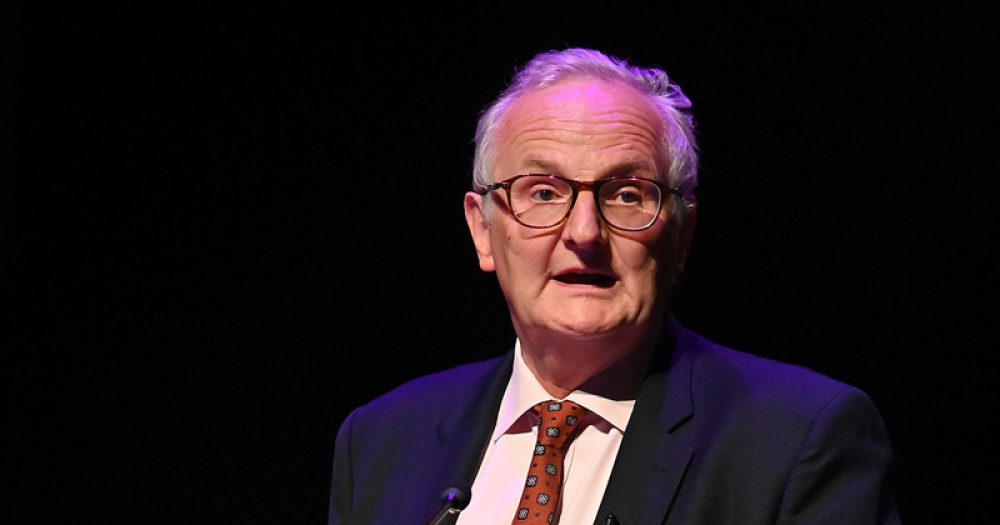The government won’t reveal which academy trusts cut their chief executive pay following warning letters – admitting ministers have no power to intervene so are reliant on the “good will” of trusts to slash salaries.
The admission comes in a ruling by the Information Commissioner’s Office (ICO) which backed the Department for Education’s refusal to publish the names of trusts that have cut pay.
Since 2017 the Education and Skills Funding Agency has sent letters to academy trusts which have somebody paid above £150,000 or multiple salaries between £100,000 and £150,000 – asking for evidence to justify paying such high salaries from taxpayers’ cash.
Every trust that has received a letter is named online.
But the DfE said negotiations with trusts are based on “co-operation and good will”. Naming chains could “sour relationships” and potentially “prejudice the whole process”, they added.
The ruling highlights the department’s total lack of power in the fight to police CEO pay in the academy sector.
Tom Richmond, director of education think tank EDSK, said “full transparency” over the use of public money is “essential”.
“If some trusts are complying with the government’s wishes on executive pay while others are not, this information should be placed into the public domain so that everyone can form their own judgement about the behaviour of each trust.”
 In November 2018, the ESFA reported two trusts had implemented immediate significant reduction in salaries following the letter, 11 committed to reducing salaries and 43 agreed to review pay policy.
In November 2018, the ESFA reported two trusts had implemented immediate significant reduction in salaries following the letter, 11 committed to reducing salaries and 43 agreed to review pay policy.
The vast majority – 131 – proved they had been compliant in setting their CEO pay.
However a Freedom of Information request to name the specific trusts was declined by the DfE and, following a lengthy review process, the decision was subsequently upheld by the ICO.
They agreed with the DfE’s submission that disclosure “would disrupt relationships with the trusts”.
The DfE told the ICO it “does not have legislative or statutory powers to restrain, cap or reduce any perceived excessive pay in the sector”.
“Negotiations to understand and justify high pay and reduce it where necessary are based on cooperation and good will… the DfE argues it is vital it is not perceived to be ‘naming and shaming’ the trusts it has worked with or continues to work with as any reductions made to salaries are done so in good will.
“To sour such negotiations and relationships through disclosures of this nature, and therefore reduce the likelihood that excessive pay levels will be addressed, it is argued, cannot be in the public interest.”
The DfE’s submission also reveals each trust is “approached individually about their pay” and considered on a “case-by-case basis as opposed to having uniform criteria every trust must adhere to”.
Sam Henson, director of policy at the National Governance Association, said the DfE’s approach had “limited success” in encouraging a reduction in pay and was compounded by difficulties in rolling back pay once a contract is agreed.
“Ultimately the issue goes beyond guidelines set by the ESFA, and largely comes down to a consideration of the ethical dilemmas that can be attributed to the culture of the organisation,” said Henson.
The DfE letters were sent as part of a clampdown on CEO pay by academies minister Lord Agnew.
A Schools Week investigation found at least 23 academy chiefs are now earning more than £200,000 – with Dan Moynihan of the Harris Federation topping the list with a £440,000 salary.
But the DfE said its negotiations with trusts are delicate, adding naming chains could “upturn discussions” that were objective into a “subjective free-for-all in the public domain”. Bosses would be identified and put under pressure to reduce pay, they added.
Leora Cruddas, chief executive of the Confederation of School Trusts, said the government was “absolutely right” in not disclosing further information.
“Pay is a necessary but not sufficient consideration in attracting and retaining talented leaders who can lead large, complex organisations – in both educational and financial terms – and ensure the best possible outcomes for children.”








Surely this information would be obvious from analysing Trusts’ financial statements. A list of Trusts paying over £150k is available, so simply compare them year-on-year and you will see those who have dropped a pay band or two.